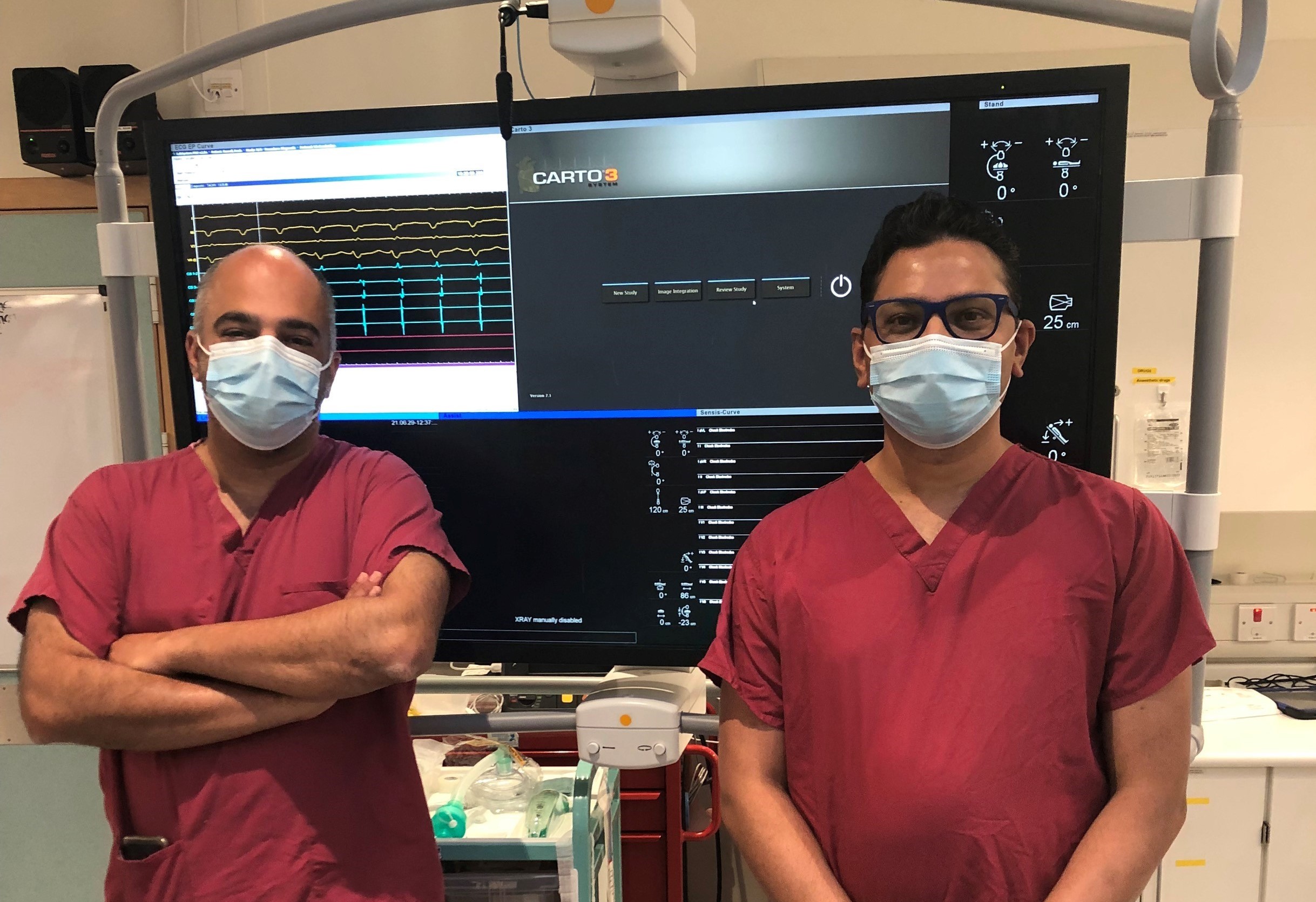Hospital joins exclusive list of global heart centres of excellence
University Hospitals Dorset (UHD) has been named as one of only nine centres of excellence in the world for the treatment of a debilitating heart condition at Royal Bournemouth Hospital.
Supraventricular tachycardia (SVT) is a rapid abnormal heartbeat caused by defects in the electrical system that controls the heart’s rhythm. Patients can experience a sudden rise in heart rate from a resting rate of 60 beats per minute to more than 200, leading to breathlessness, dizziness, chest pain, a pounding heart and extreme anxiety.
Arrhythmia Alliance - a coalition of charities, patient groups, patients, carers, medical groups, and allied health professionals – has now awarded UHD ‘centre of excellence’ status, in recognition of their treatment success rates – 95 per cent of patients a permanently cured of the condition - as well as an active research programme which has seen a number of scientific papers published.
UHD joins world-renowned cardiology centres including those at London’s Royal Brompton and Harefield Hospital and Stanford University in the US, who are also on the list.
The condition is treated using a technique called catheter ablation - wires are inserted from the top of the leg and guided to the heart, enabling the detection of abnormal circuits which are then cauterised.
SVT can be frightening and incapacitating, says Dr Richard Bala, consultant in electrophysiology and clinical lead in cardiac rhythm management, based at Royal Bournemouth Hospital, part of UHD.
“It’s debilitating for sufferers,” he said. “It causes unpredictable episodes of breathlessness, chest pounding and a feeling that they are about to black out, which patients can experience anything from just a few times each year to more than once a day.”
More than 300 patients with SVT from across Dorset, west Hampshire and Wiltshire have been successfully treated over the last year after undergoing catheter ablation for the condition, and more than 95 per cent of patients are permanently cured.
Ann Blake, from Bournemouth, was treated in May this year.
“My heart problems started when I had treatment for cancer 21 years ago,” explains Ann.
“The cardiology team picked up on the fact I was experiencing episodes of fast heart rhythms in my sleep - it occurred to me that it wasn’t nightmares that had been causing me to wake up in the middle of the night with a feeling of sheer panic, it was a heart problem.
“It would come on at any time, in the shower, in front of the television, anywhere - and it was frightening. I wondered each time if it was the start of a heart attack.
“Since having the treatment I haven’t had a single episode, and I don’t have to worry about one coming on unexpectedly.
“The cardiology team at Royal Bournemouth, from start to finish and throughout Covid-19, have all been incredible.”
Dr Bala says stories like Ann’s have helped the service receive worldwide attention.
“This accreditation is a reflection of the hard work and enthusiasm of our team in providing the very best care for our patients - we are very proud.”

Dr Richard Bala and Dr Girish Balu, Electrophysiology Consultants









